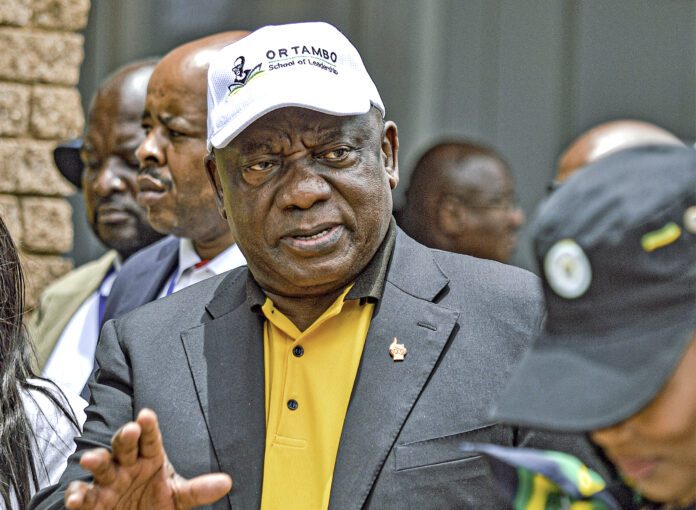President Cyril Ramaphosa is finally growing a pair, and credit must be given where it is due. He appears to be taking a stand against powerful elites and lobby groups who have long abused their golf-course proximity to him for self-enrichment.
The new Ramaphosa is taking the side of the ordinary people, not just the interests of unelected corporate and foreign-funded lobby groups.
Just this week, he bravely sent an army commander to Russia for a bilateral meeting between the two military establishments. The two countries will discuss military cooperation and interaction.
That Lieutenant-General Lawrence Mbatha lands in Moscow while American ambassador Reuben Brigety’s Russian teacup weapons storm bubbles show unprecedented courage.
Whatever the reasons, the general’s visit is a show of strength against the Americans’ attempt to bully South Africa into submission over the Russia/Ukraine conflict.
This is done using the African Growth and Opportunity Act and other trade relations as a carrot and stick.
The bold Russian stance should be a welcome change after five years of backboneless leadership. This new assertive leadership was needed to protect South Africa’s sovereignty and maintain the country’s strong stance in the international arena.
Two years ago, things were different when the president characterized the July unrest as an insurrection.
The subsequent report of the expert panel found that Ramaphosa regurgitated the analysis of so-called “think-tanks” and big business leaders. That was even as his own cabinet rejected that analysis.
We have come from far, but the tide seems to be turning.
Last week, Ramaphosa gave thumbs up to the power ships, which would have enraged the intricately coordinated renewable energy lobby.
This lobby group had managed to frustrate the power ships’ intervention at every turn.
From day one, they attacked tender processes, environmental assessment requirements, regulatory licence permits, and port allocations.
The ships have been the subject of negative media coverage since the festive season of 2019. This is when the Department of Mineral Resources and Energy requested 2 000MW of emergency power from the Turkish-based company KarpowershipSA.
Ivory Coast, Sierra Leone, Senegal, Ghana, and elsewhere have all followed the same route in moments of crisis. And this has given the African nations more options and flexibility in times of crisis.
The lobby groups had their game so locked that last July when the government mulled fresh emergency power plans, power ships were a distant memory.
But the stranglehold finally broke last week in parliament when Ramaphosa told MPs “a power ship, or some form of emergency power” would alleviate the energy shortage.
In verbatim, he said: “I do believe that is the way to go right now to add those megawatts right now while we wait for the construction of renewable energy resources as well as the revamping of our baseload coal power stations.”
A day later, Electricity Minister Sputla Ramokgopa echoed Ramaphosa, saying that the government will consider alternatives to diesel at any price.
“Anything cheaper than diesel is the best option for Eskom. Emergency procurement should be three to five years,” he said.
This was a major victory that marked a shift in government’s position on the energy crisis. It showed that the government was finally willing to take necessary action to address the issue, despite opposition from lobby groups.
This new-found autonomy would enable South Africa to become independent, allowing us to make decisions for our own benefit with minimal interference from outside forces.
And if that is the reason why some of his longstanding advisors have recently jumped ship, good riddance.
To read more political news and views, click here.
Follow @SundayWorldZA on Twitter and @sundayworldza on Instagram, or like our Facebook Page, Sunday World, by clicking here for the latest breaking news in South Africa.



